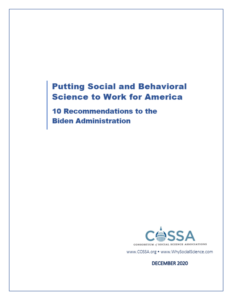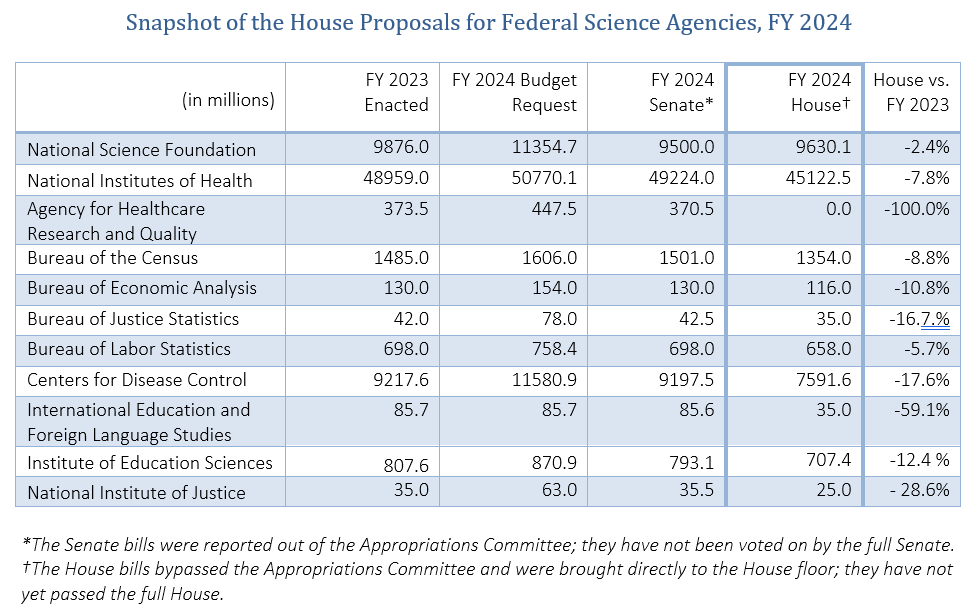COSSA advocates for sustainable federal funding for and widespread use of social and behavioral science research and federal policies that positively impact the conduct of research.
2020
Putting Social and Behavioral Science to Work for America: 10 Recommendations to the Biden Administration

From COVID-19 to racial inequity, climate change to a struggling economy, a disrupted educational system to record-breaking unemployment, the country finds itself in urgent need of immediate policy solutions—solutions that are based on unbiased, sound, and reliable science. Fortunately, there is virtually no aspect of human life that cannot be informed by research in the social and behavioral sciences.
The COVID-19 pandemic has shown that “business as usual” policies and practices, even when it comes to science, are not enough. The Biden-Harris Administration has before it an opportunity to strengthen the U.S. scientific enterprise by making it more sustainable, diverse, and responsive to emerging needs. By investing in and utilizing social and behavioral science insights, the incoming administration can put people back at the center of policymaking.
The Consortium of Social Science Associations (COSSA) is pleased to offer the following recommendations to the incoming Biden-Harris Administration of tangible steps the administration can take to achieve meaningful results using insights derived from the social and behavioral sciences. COSSA and the social and behavioral science research community stand ready to assist the incoming administration “Build Back Better,” tackling the most critical near- and longer-term challenges with the help of science and evidence.
Research Security Revisited: COVID-19 & Immigration
Summary
In January 2020, COSSA released a Hot Topic titled “Foreign Interference in the U.S. Research Enterprise & Policy Responses,” which reported on the broad policy concerns about securing the U.S. research enterprise, foreign influence, racial bias against Chinese and Chinese-American citizens, and the wide range of actions in response to these concerns taken by the White House, federal agencies, and Congress. Since the publication of that analysis, the sudden and unprecedented global spread of the COVID-19 pandemic in the early months of 2020 has had a significant impact on the policy conversations surrounding the security of the U.S. research enterprise. The global community became singularly focused on developing vaccines or other treatments for COVID-19, directing attention away from other science priorities. Furthermore, the pandemic has had other indirect impacts on research security, in some cases exacerbating existing concerns such as discrimination against Chinese citizens, Asian Americans, and Pacific Islanders, and a chilling effect on international research collaboration.
The following pages revisit the topics discussed earlier in the year and provide updates on activities that have since occurred, including how the global COVID-19 pandemic has affected U.S. research security activities. Readers are encouraged to read the information in the prior report for a more comprehensive look at research security efforts and concerns prior to January 2020.

